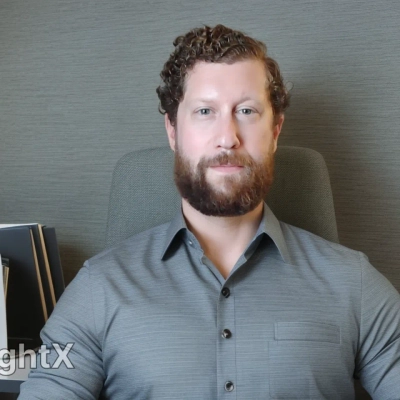Flexible Work Arrangements: How Workplaces Support Mental Health
Flexible Work Arrangements: How Workplaces Support Mental Health
Flexible work arrangements are transforming modern workplaces, with profound impacts on employee mental health. Drawing from expert insights, this article explores how adaptable work environments contribute to psychological well-being and job satisfaction. Discover the key strategies businesses are implementing to create healthier, more productive work cultures through flexibility.
- Flexibility Fosters Healthier Communities
- Trust and Adaptability Boost Employee Well-Being
- Psychological Safety Transforms Workplace Culture
- Remote Work Empowers Personal Autonomy
- Freedom in Practice Management Reduces Stress
- Energy-Based Scheduling Enhances Work-Life Balance
- Outcome-Focused Approach Improves Team Morale
- Autonomy Cultivates Clarity and Resilience
- Remote Policy Supports Work-Life Integration
- Structured Flexibility Creates Calm Work Environment
- Asynchronous Work Enables Mental Reset
- Redefining Flexibility Boosts Team Ownership
- No-Meeting Periods Foster Creativity
- Adaptive Schedules Lower Stress Levels
- Work-Life Balance Drives Employee Retention
- Flexibility Improves Productivity and Retention
Flexibility Fosters Healthier Communities
Flexibility is more than just a benefit to us — it is core to how we work. As an online school for families located in over 30 countries, we learned early on that strict schedules can quietly chip away at learning and well-being. So we build flexibility into everything, from how our staff work to how our students learn.
For my staff, flexibility includes working remotely, flexible hours, and designing the day around energy instead of time. It has also meant for me, as a leader and a parent, that I can show up for both roles without feeling like I’m always making a choice as to which one to prioritize. The balance has been an enormous boon to my overall mental health.
For our families, we have weekly check-ins that involve the student and parent. These check-ins are more than just academic check-ins; they are well-being check-ins. They allow a real-time pulse on how stress, workload, or personal issues may be impacting progress, and we can adjust quickly.
The effects have been profound: staff feel trusted, parents feel supported, and students feel valued. Intentional flexibility creates not only positive outcomes; it creates healthier communities. In my experience, that is the ultimate measure of success.
 Vasilii Kiselev
Vasilii Kiselev
CEO & Co-Founder, Legacy Online School
Trust and Adaptability Boost Employee Well-Being
The conversation around workplace flexibility has shifted from being a perk to being a necessity. As awareness of mental health grows, organizations are realizing that how, when, and where people work profoundly influences well-being. Flexibility isn’t just about convenience — it’s about creating an environment where employees can balance professional demands with personal health.
Incorporating flexibility means rethinking rigid structures and replacing them with trust and adaptability. This can take many forms: hybrid schedules, asynchronous communication, flexible hours, or even mental health days. The common thread is respect for employees as whole people with diverse needs. When flexibility is prioritized, stress decreases, productivity rises, and employees feel more in control of their lives — an essential component of mental health.
We’ve embedded flexibility into our daily operations. Team members can adjust their schedules to accommodate therapy sessions, family commitments, or simply time for rest. For example, one employee shifted to a four-day workweek during a stressful life transition, which not only safeguarded her well-being but also allowed her to return more energized and creative. Far from hurting productivity, this flexibility sparked new ideas and strengthened team collaboration. The impact on my own well-being has been equally profound: knowing that I can adapt my work schedule when needed has reduced anxiety and helped me lead with more empathy.
Data reinforces these outcomes. According to a 2022 American Psychological Association survey, 87% of employees believe that flexibility in work arrangements reduces stress and improves mental health. Additionally, a Harvard Business School study found that companies offering flexible work reported a 55% increase in employee productivity and significantly higher retention rates. These statistics highlight that flexibility isn’t just an act of kindness — it’s a smart business strategy.
Flexibility is a powerful tool for supporting mental health and creating a sustainable workplace. When organizations build trust by allowing employees to shape how they work, they foster resilience, loyalty, and innovation. For leaders, the lesson is clear: a flexible culture isn’t just about adapting to external changes — it’s about empowering people to thrive.
 Miriam Groom
Miriam Groom
CEO, Mindful Career Counselling
Psychological Safety Transforms Workplace Culture
Great question — flexibility isn’t just a perk anymore; it’s becoming one of the cornerstones of workplace mental health. We see every day how much of a difference it makes when employees feel they can shape their work around life, not just the other way around.
For many organizations, flexibility means more than hybrid schedules or remote options — it’s also about the psychological permission to work in a way that matches energy, family needs, or even the ups and downs of mental health. When people know they can step away for a therapy session, adjust their hours after a tough night, or log in from a calmer environment, stress levels drop and resilience goes up.
Personally, I’ve found that flexibility transforms well-being by reducing the background anxiety of “having to be everywhere at once.” It creates space for healthier routines — exercise, therapy, time with loved ones — which in turn fuels better focus and engagement at work.
In short: flexible arrangements are less about where or when work happens and more about trust. And when trust is present, people feel safe, valued, and more able to bring their best selves to work — which is exactly what supports long-term mental health.
 Alberto Vaccaro
Alberto Vaccaro
Corporate Counselor & Content Contributor, CCS – Corporate Counselling Services
Remote Work Empowers Personal Autonomy
We’ve built flexibility into the core of how we work. Our team operates remotely, which allows everyone to design their workday in a way that best suits their lifestyle, energy levels, and personal commitments. Whether it’s starting later to manage school drop-offs or working from a new location for a change of pace, we trust our team to find the rhythm that works for them. We also offer generous personal and mental health leave because we know that supporting wellbeing means recognizing when someone needs space to rest and reset.
We also prioritize regular team and individual check-ins, not just about work but about how people are feeling. These conversations help us identify any early signs of burnout, blockers, or challenges, so we can step in with support before things escalate.
Personally, I find this level of openness and autonomy to be transformative. It reduces unnecessary pressure, builds trust, and creates a workplace culture where mental health and respect for people’s lives outside of work are genuinely integrated into our day-to-day.
 Ben Southall
Ben Southall
Co-Founder, Talked
Freedom in Practice Management Reduces Stress
I’m a psychologist and owner of a practice group. The other clinicians in my practice group are 1099 contractors, meaning that they get paid at a higher rate but don’t have benefits. With this arrangement, they make their own schedule, caseload, type of clientele, and time off. They are private practitioners paying a share to use my company’s infrastructure. They either have to have a partner with commercial insurance or pay for it themselves.
However, this arrangement provides a lot of freedom, flexibility, and meaning. They have the pride of their own private practice under my brand, which has a strong reputation, without any of the stress of managing operations like software, marketing, website, insurance, etc. I’m proud of the environment and culture I’ve created, though it adds more stress to me because I take the responsibility to support these other professionals very seriously.
The schedule for a therapist has been quite enjoyable — meaningful work and we typically have the capacity to work 4 full days, with a day a week of administrative catch-up, plus extra time with family. Additionally, this style of work allows for working from home, in-office, or hybrid. My office is a short walk — again, more time with family. Most of the therapists I know and who are working in our practice picked their own office, allowing them to get out of the house but still avoid long commutes.
As a therapist, I also work with people reacting to the “new” work culture accelerated by the pandemic: working remotely at least part-time. This resulted in a related shift in the workplace: we used to use an easy but not so ideal outcome measure: hours. Sitting at a desk for 40 hours doesn’t mean you put in 40 hours of work. Now, people measure outcomes by whether they completed meaningful work or reached meaningful outcomes for what they were paid. Some managers have struggled with this transition.
I find that the clients I see with self-critical or self-controlled forms of depression struggle with this too — they liked a clear standard that you leave work at 5pm and can let yourself off the hook. Now they have a task to self-validate their work as adequate and meaningful — it is okay to feel relaxed at home, to turn over the laundry, to wrap up early if you met your job expectations. Sitting in misery doesn’t help anyone and is a short-term goal to defuse guilt, but we can work on this in therapy.
 Jon Weingarden
Jon Weingarden
Psyd, Owner of Wps, Weingarden Psychological Services
Energy-Based Scheduling Enhances Work-Life Balance
I work independently, so building flexibility into my work arrangement typically involves arranging my schedule around my natural energy levels. This allows time for breaks when my attention and focus decline, and enables me to dedicate peak hours to work tasks that are more demanding or require sustained mental effort. I feel it’s important to allow myself to adjust my workload when life stressors arise, as this will minimize burnout.
In traditional workplace settings, incorporating flexibility could be achieved by allowing a blend of remote and in-office work, flexible start and end times, and the option to step away for short mental and physical breaks without penalty. This approach acknowledges that productivity isn’t tied to a rigid schedule and is most beneficial when there is balance and focus.
For most people, this flexibility is invaluable. Individuals can schedule therapy or medical appointments or take small midday walks without feeling guilty, allowing them to return to their work more focused and energized. For me, this flexibility has reduced stress, improved my sleep, and made it easier to manage professional and personal responsibilities.
Overall, having control over when and how I work has strengthened my mental health, productivity, and investments into the organization.
 Carolina Estevez
Carolina Estevez
Psychologist, Soba
Outcome-Focused Approach Improves Team Morale
For me, flexibility has always been about creating a rhythm that avoids burnout for everyone on the team, especially given the time zones we span. Our sourcing runs early in the morning for our team in Shenzhen, but I give them the flexibility to change hours if they are working late for client calls. One team member took that liberty and started running in the morning. She became more focused and made fewer errors. I block off one afternoon a week for family time and catch up later in the evenings. Honestly, it creates a sense of balance, makes the work easier, and keeps morale high. When people have a breather, the whole operation flows better.
 Mike Qu
Mike Qu
CEO and Founder, SourcingXpro
Autonomy Cultivates Clarity and Resilience
Flexibility isn’t a policy for us; it’s more like a mindset. Within our team, we’ve always believed that people do their best work when they’re trusted to manage their time and energy in a way that works for them. So rather than enforcing set hours or strict routines, we’ve built a culture that supports outcomes over presence.
For example, if someone wants to start their day later to go for a run, or needs a midday break to pick up their kids or just unplug for a bit, that’s completely fine. It’s not something people need to ask permission for. They may need to inform their team, yes, but other than that, it’s all about trust.
Personally, I’ve found this flexibility has had a massive impact on my own mental health. There’s a huge difference between working long hours because you’re energized and inspired, versus grinding through a 9-to-5 because it’s expected. Having the autonomy to adjust my week based on how I’m feeling or where my focus is strongest has helped me stay connected to the work without feeling drained by it.
One thing I always come back to is this idea that work should fit into your life, not the other way around. When people have that space to breathe, they show up with more clarity, more creativity, and more resilience, and that ends up benefiting the whole team.
 Jamie Frew
Jamie Frew
CEO, Carepatron
Remote Policy Supports Work-Life Integration
Our company has embraced a fully remote work policy that allows employees to work from anywhere across multiple time zones. This approach demonstrates our commitment to trusting our team members while supporting their mental health through genuine flexibility and work-life balance. The personal autonomy this provides has significantly improved my overall well-being by allowing me to structure my workday in ways that accommodate both professional responsibilities and personal needs. I’ve found that this freedom reduces unnecessary stress and enables me to be more focused and productive when working.
 Mateusz Mucha
Mateusz Mucha
Founder, CEO, Omni Calculator
Structured Flexibility Creates Calm Work Environment
In a dental setting, flexibility may not mean working from home, but it should still involve taking care of your team’s mental health. In our orthodontic practice, we have built flexibility into the way we schedule, assign responsibilities, and structure our day-to-day operations so that the entire team can do their best work without burning out.
We maintain a tight and predictable patient schedule. Every team member knows what to expect, and we space out complex cases so that the energy in the office remains calm. Everyone has real breaks built into the day, and when someone needs time off, we plan for it. This is not an exception; it is part of how the practice runs.
This structure reduces stress, keeps communication clear, and creates a sense of control over the workday. The result? Our team stays, remains engaged, and feels respected. And when the team is in a good place mentally, patients feel it too.
Flexibility in a dental practice is not about cutting hours. It is about building systems that give people room to breathe. That is what we have done, and it is one of the biggest reasons our office runs as smoothly as it does.
 Dr. Laurence Schimmel, DDS
Dr. Laurence Schimmel, DDS
Owner, Schimmel Orthodontic Associates
Asynchronous Work Enables Mental Reset
Our company abandoned the traditional 9-5 work schedule several years ago. The team operates asynchronously across different time zones because we focus on work completion rather than tracking employee locations between the Chamonix mountains and Portuguese beaches. I have conducted business calls from various locations, including bars, train stations, and even during a laundry session at a campsite. Such freedom enables the brain to experience a complete reset.
The change has brought significant benefits to mental health. The transition has allowed team members to recover from burnout more quickly while finding new enjoyment in their work activities. The ability to move freely without being confined to a chair brings me better sleep because physical activity helps my mind find clarity.
 Vincent Carrié
Vincent Carrié
CEO, Purple Media
Redefining Flexibility Boosts Team Ownership
For a long time, we believed flexibility was solely about remote work, but this wasn’t the reality for our operations team. This misconception created a significant disconnect, and we observed signs of burnout and a lack of motivation. We recognized the need to incorporate flexibility into our work arrangements to support mental health, but we had to redefine what that meant for us.
Our concept of flexibility isn’t about where you work; it’s about autonomy and a sense of purpose. We provided our teams with a clear set of goals and trusted them to complete the work on their own schedule.
From an operations standpoint, we implemented a new, streamlined process for our team to get orders out the door. The objective wasn’t to stay for a set number of hours; it was to complete the job correctly. If they achieved their daily goals, they could leave early. From a marketing perspective, we assigned our team a set of projects with a deadline and trusted them to complete the work on their own time.
The impact this flexibility had on our well-being was transformative. My team experienced a new sense of ownership and autonomy. The most significant impact was the reduction in stress. My team wasn’t just working for a paycheck; they were working for a sense of purpose. This led to a substantial increase in productivity and a more cohesive team. For me, it provided a sense of relief from my own stress, as I knew I could trust my team to complete the work.
My advice is that flexibility isn’t just about remote work. It’s about trusting your team and giving them a sense of ownership over their work. This type of flexibility can work for any business.
 Illustrious Espiritu
Illustrious Espiritu
Marketing Director, Autostar Heavy Duty
No-Meeting Periods Foster Creativity
We don’t just have a level of flexibility — it is the way we operate. Team members have the option to work remotely or in hybrid arrangements, set their hours for when they are most productive, and set up “no-meeting” periods that don’t require online meetings so they can focus or recharge. For instance, I often start earlier in the day and then have an afternoon break to reset before starting back to focus on creative work.
This level of autonomy has been very beneficial for mental health. For me, it has eased the low-grade stress of trying to jam productivity into inflexible 9-5 blocks. It has also fostered creativity, as I notice that some of my best ideas for campaigns come during those middle-of-the-day breaks when I allow my mind to breathe a little bit.
The result: improved work/life integration, elevated output, and a culture/atmosphere that people seek and feel trusted to deliver work, not just clock in.
 Syed Irfan Ajmal
Syed Irfan Ajmal
Marketing Manager, Trendline SEO
Adaptive Schedules Lower Stress Levels
Our workplace incorporates flexibility by allowing employees to adapt their schedules around personal needs, whether that means starting later, working remotely, or taking short breaks to recharge during the day. This approach recognizes that productivity looks different for everyone and gives people the freedom to structure their time in a way that works best for them.
For me, this flexibility has reduced the pressure of trying to fit personal responsibilities into rigid hours. It has made it easier to balance work with life commitments, which in turn has lowered stress and created a healthier routine overall.
The impact on my well-being has been significant. I feel more energized, more focused when I’m working, and more supported by the company culture. Knowing that flexibility is encouraged makes it easier to maintain both mental health and consistent performance.
 Phillip Young
Phillip Young
CEO, Bird SEO Agency UK
Work-Life Balance Drives Employee Retention
Our company has built flexibility into our core operations by allowing team members to work around their appointments, daily personal needs, and circumstances. As co-founders, my wife and I deliberately built our business model to support both professional productivity and personal well-being. For us, well-being and productivity are inherently connected, so we take that view with our employees. For our employees, nothing is more important than work-life balance. We’ve seen remarkable retention rates and consistently high-quality work from our team members who value the flexibility to be fully present both at work and at home.
 Maurice Harary
Maurice Harary
CEO & Co-Founder, The Bid Lab
Flexibility Improves Productivity and Retention
Flexibility in our workplace mostly comes down to trusting people to manage their own time. With staff across different time zones, strict 9-to-5 hours don’t make sense. We let people adjust their schedules around their lives, and in return, we’ve seen less stress, better mental health, and stronger overall performance. It’s proof that flexibility pays off.
 Hershel Glueck
Hershel Glueck
CEO, Hero Time
